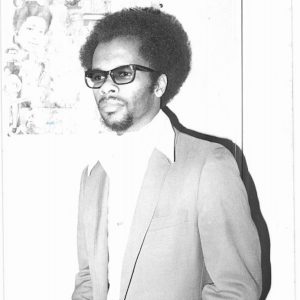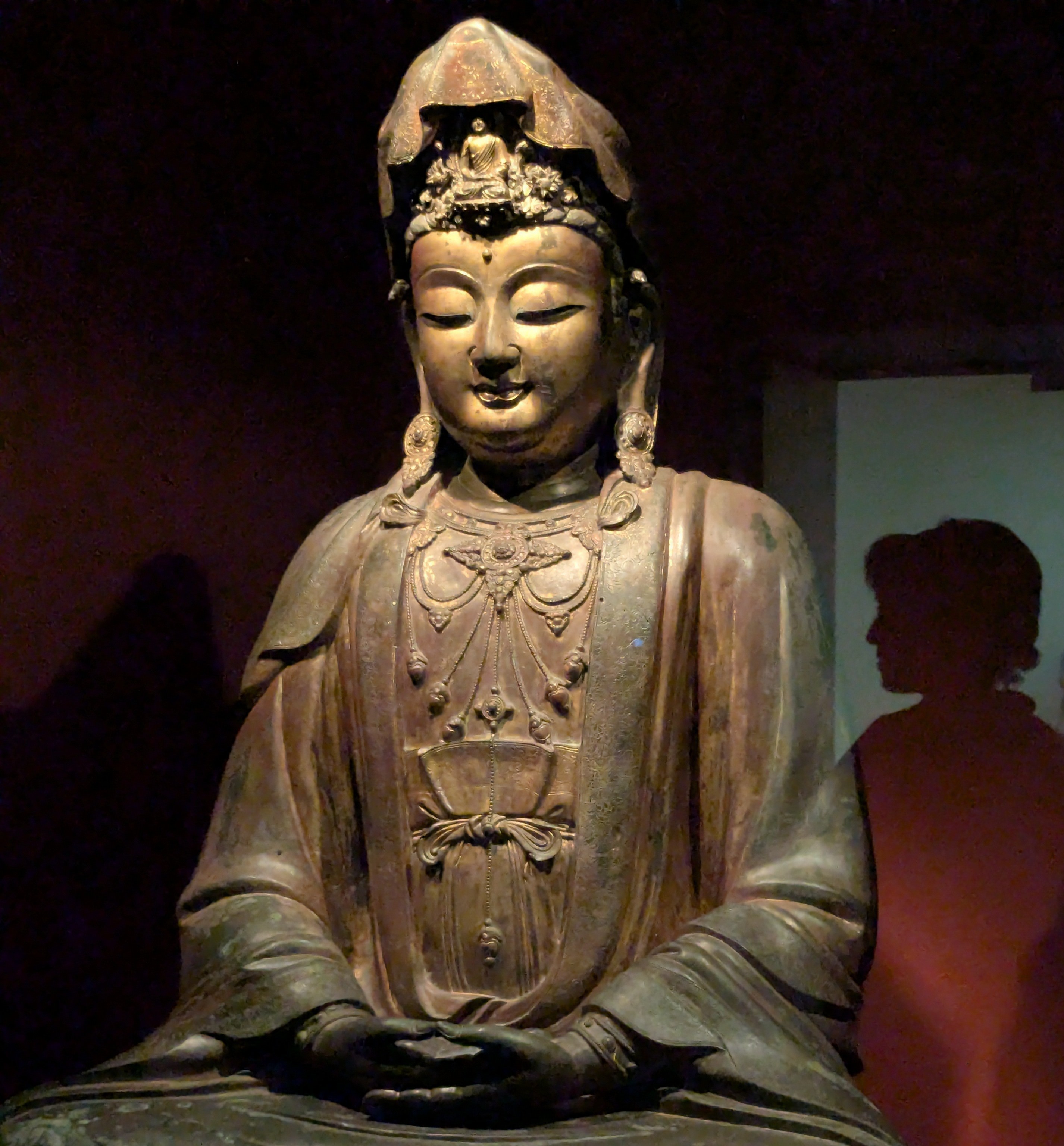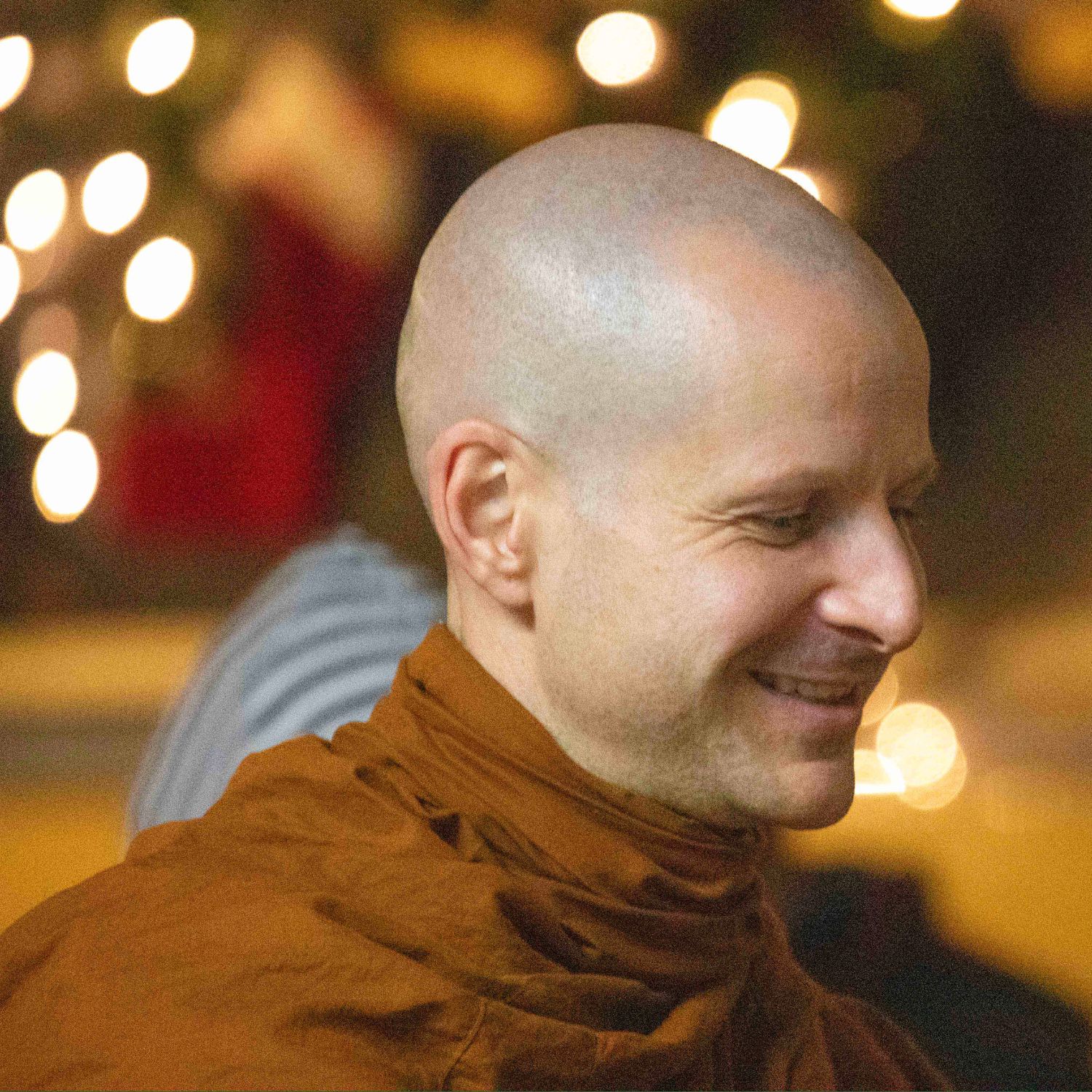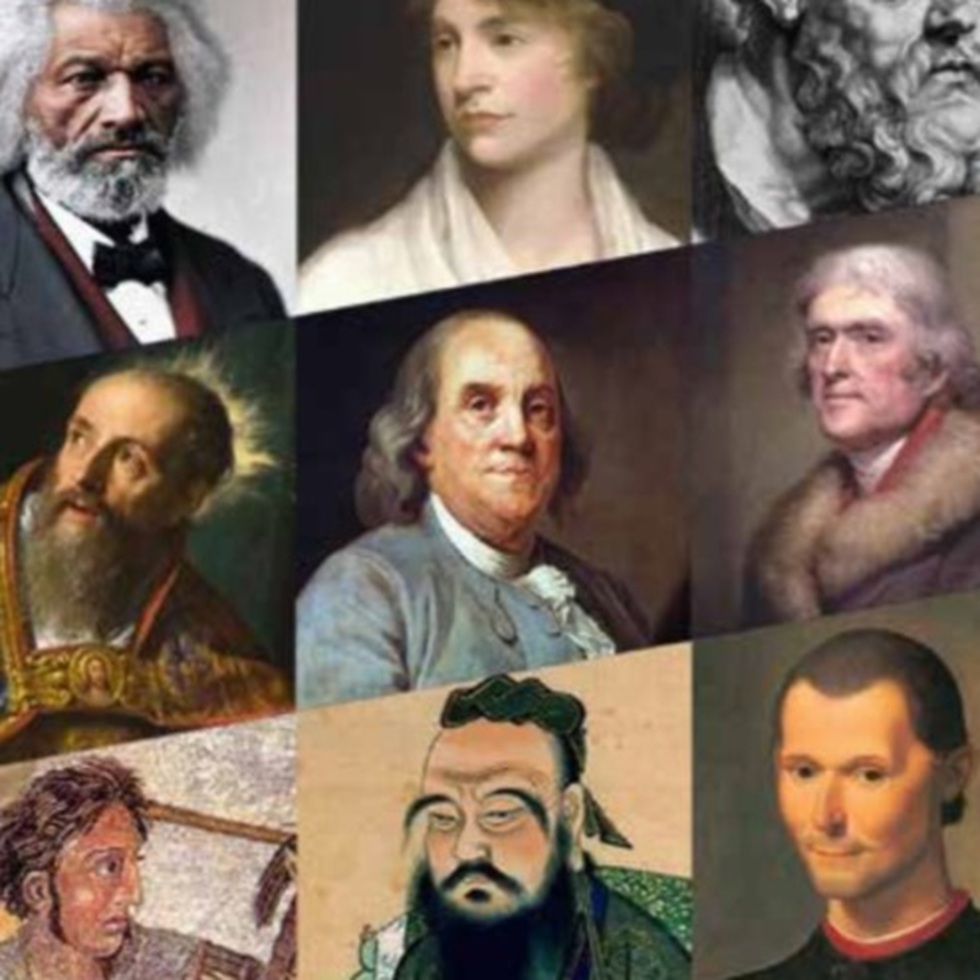
Rev. Robert Mcknight: Black Lives Matter and Its Historical Context
Reverend Robert McKnight originally gave this talk at a DRBU Symposium event on August 31st, 2020. We share with you the audio recording and excerpted transcript below.
Audio recording: https://soundcloud.com/user-52211250/black-lives-matter-and-its-historical-context-a-dialogue-with-reverend-robert-mcknight
To talk about anything in the present—in order to gain an understanding of anything that’s going on today, one must return to the past, and the past deals with history. We cannot separate the past, the present, and the future. And so, in going back to the past, to history, we go back to gain some knowledge of history, of what was going on before in relation to the context in which we are analyzing the present. Once we gain this knowledge of history, we’re in a better position to understand the present. It is impossible to understand the present if we don’t know what transpired before. Once we are armed with this knowledge and we understand the present, we can then sit down and intelligently strategize about making a difference about the creation of a bigger and brighter future.
There can be no future that’s different from what we are experiencing now unless we understand why we are doing the things that we are doing and why these events are occurring. If you look at American history, you would see that, as a very wise man said, “There is nothing new under the sun.” The historical events that we are eye-witnessing today, we are actually eye-witnesses to history that occurred in the past. So this is nothing new. In ancient Africa, Black lives mattered. Africa is the cradle for all civilization. It is the birthplace of humankind.
I don’t want you to take my word for it. On January 11, 1988 Newsweek Magazine, that was published all over the world in all languages, had this cover story. It was their account of a documentary that was entitled, In Search for the Real Eve. And as you can see, this is Newsweek artists’ conception based upon the information presented in this scientific study. If Adam and Eve were alive in 1988, this is what they would have looked like. They would have had the same jerry curl hairstyle. And so, in this article where scientists explore a controversial theory about man’s origin, what they come up with—and again you have to draw your own conclusion—but their conclusion stated that Eve is the mother of all humankind. That she would be today in 1988, the ten thousandth grandmother of all living beings. Interesting story. I want you to pull this up on the internet and read it for yourself.
And if you want something more scientific, I have a couple of reference books. One is the Introduction to African Civilizations by noted scholar John Jackson. He comes up with the same conclusion. The other is The Destruction of Black Civilization by Dr. Chancellor Williams. I’ve used this book frequently in teaching African Civilization. And then there is Cheikh Anta Diop’s historical and scientific study, The African Origin of Civilization: Myth or Reality. They come to a concert agreement that indeed Africa is the mother of civilization, the birthplace of all humankind.
Now to find out what happened, why we are dealing with the fact that Black lives matter in this century, in 2020, in the 21st century, I suggest you read The Destruction of Black Civilization by Dr. Chancellor Williams, focus, if you will, on Chapter 6. Chapter 6 deals with the origin of democracy. The African constitution that democracy first took place on the African continent. I do not want to bore you by reading from it, you can do that on your own. But, with other scholars, he establishes that African civilization was the world’s first written civilization. That it gave birth to democracy. In the arts we would say that other civilizations that came along later borrowed heavily from the African constitution. Another African scholar, the late Dr. George James authored a book, and he wasn’t so kind—he didn’t say they borrowed it—he calls it the “stolen legacy,”
As we look at what is occurring today and what happened in terms of the relationships that have developed over the years since European contact, there is another book that you should read, They Came Before Columbus: The African Presence in Ancient America by Dr. Ivan Van Sertima. What he makes known is that even before the 15th and the 16th centuries, Africans were present in America. Some of you have probably read excerpts from this book, because historians, especially in African American history, borrow from it heavily.
Now that we have established both Newsweek and scholarly publications say that Africa is the birthplace of civilization, and as Chancellor Williams establishes in Chapter 6 that the important elements of African civilization were built around education and the family and that there was no difference between the government and the people, the point being made historically is that African lives have always mattered. Because when you look at African civilization, you see that long before Europe came into existence, there was medical science, they had mastered mathematics, and had sophisticated systems of government, many of them self-governing. African lives mattered so much, they didn’t need any kings, they didn’t need anyone to lead them—it was a collective effort because of their value and appreciation of human life and of each other. We do not have, I believe, any societies today that are self-governed where there is order. Isn’t that interesting.
Now we had said before that centuries before European contact, whether we use 1492, as some maintain, or 1501, when the Spanish throne approved and licensed the use of Africans in the New World as slaves because they brought no slaves from Africa—they brought free people from Africa. And as we will talk about momentarily—and they made them into slaves. And then in 1525, according to Congressional records, some maintain 1526, not 1619, Spanish explorers brought the first free Africans to America for the purpose of erecting a settlement in what is now a settlement in what is now the state of South Carolina. Not 1619, in terms of the English colonies, but in 1525, and we’ve researched that. And there is a reason why historically, in most of the history textbooks, they make no mention of 1525. That date is obliterated from African American history and there is a reason for that.
In the early ’60s, [Doug Powers and I] would go up to the University of California and sit in Dr. Andrew Billingsely’s class. He authored a book during that period of time, Black Families in White America and one of the things he notes in the foreword is that the family—and I’m paraphrasing—is the most important institution of any people. The family is the center and source of all civilization, and it is from the family that we discover and learn our values and our own self worth. Your image comes from the family, and your self worth comes from the family.
One of the first things that happened in that process of reducing free people to slaves helped to bring about this movement of Black Lives Matter, because the first thing they did was to take away all elements of culture. That was family, religion, names, music, dance, symbols, dress, diet, everything that we contribute to culture was stripped away. They were not allowed to practice it. And in the place of their native, their indigenous culture, they substituted an alien culture, a culture they were not familiar with and they were forced to practice. And in taking away someone’s culture, in taking away and annihilating their history, you do not need an army. You do not need physical force to dominate a people. All you need to do is to destroy their history, to take away their culture, and you can automatically oppress them. And this is what happened to African people, that today—what we are witnessing—the late Malcolm X also [known as] El-Hajj Malik El-Shabazz said, and I quote, “History is a people’s memory and without history, man is demoted to the lower animals.” And so, up until the late 1960s, the history of Africa and African American people, was not taught in 90% of public schools and in very few colleges.
Berkeley High School had the first department of African American Studies in the United States that cut across all academic disciplines with the exception of science and math, all else, all of the academic disciples. We offered courses in English, in Performing Arts, in Foreign Language, and had a newspaper in Journalism. We offered the first African language to be offered in public education and in higher education, with the exceptions of schools like the University of California and others that had an extensive language department. We offered Swahili. We had fifteen sections, three full time teachers, teaching an African language everyday. Even though there are more languages spoken on the African continent, even today, then on any other continent, none were offered here. And what we were told historically is that we did not have a language, that we were babbling, and it didn’t have any meaning to it. And as a people, we were unable to practice your language.
What happens when you say you have no culture? It is a devaluation of the appreciation and meaning of life. Maybe the consciousness is not there, but speculation says it is one of the reasons that helped to create the movement Black Lives Matter. No human being should have to protest and put their lives on the line to get the rest of the world to agree and to recognize that they are not invisible, but that their lives matter. And so, if we’re going to change this, and we do need to change—all of society needs to change. If we are to exist, if we are not to destroy each other, which we see some manifestations of all around us today, one of the solutions is that, as humans, we have to move more towards and into the light of civilization and involve our humanity.
In 2020, the war of moral degradation, economic exploitation, and social humiliation is not only political and physical. It is a war. It is a struggle on a psychological and a spiritual level. It has advanced. It is now psychological and spiritual. And the American standard version of a holy book, it talks about this. It took a long time for us to recognize this. There is a chapter in the American standard version of the Holy Bible, the Book of Ephesians, Chapter 6 Verse 12 It speaks of this dilemma we are confronted by today. The writer says, “For our struggle is not against each other, it’s not against flesh and blood, but against the rulers, against the powers, against the world forces of this darkness, against spiritual forces of wickedness in high or heavenly places.” There are some social scientists that maintain that this is happening in society today, that the people are being forced into psychological and spiritual captivity.
It may not be your observation, but it is the observation of many social scientists, and I agree with them. One of them is an author, a noted clinical psychologist and college professor Dr. Na’im Akbar. The title of his book is Breaking the Chains of Psychological Slavery. Physical slavery has ended, but it has been replaced by a worse form of slavery that is much more damaging to the human soul than the shackles on the ankles or the wrists—because you can’t break them. You can run away, but it’s extremely [difficult] to run away from one’s own consciousness. And so it takes more of an effort. A Harriet Tubman, a Frederick Douglass cannot lift you out of psychological bondage. It has now become a battle. This is not Star Wars, but it’s now become a battle between the forces of light and the forces of darkness.
Being the students that you are, you know that Africa is in the east. And the sun rises in the east, and it sets in the west. So Africa, being the mother, according to anthropologists and historians and other scientists, being the mother of all civilization, historically it’s the place where man first came into light. Now today those of European ancestry are falsely being portrayed as the forces of light. Therefore, trying to understand why Black life matters, the manifestations of what we call sociologically and politically white supremacy and racism as hatred, violence, and oppression of every kind, can now be justified, encouraged, supported and applauded from the highest political offices, from some of the most prestigious academic institutions, as well as sacred places of worship and practice. Don’t try and buy a home today if you’re an African American and practice in some of the largest financial corporations. It was in the 1980s when it was acknowledged, that in America, that there are two separate Americas. They say it sociologically, I think it was Dr. Billingsely, I stand to be corrected, that in these two Americas, one white and powerful, the other Black and powerless. One populated with the “haves” and the other with the “have nots.” And racism, like culture, I think we can have an agreement, is thousands of years old.
Culture is passed down from generation to generation. Culture does not begin anew with each generation. Remember I said an alien culture. In the African American community, you have at least two generations who believe they discovered a new culture. If I said this in classrooms, I would have an argument. We would have one of the most heated discussions, but hip hop is not a culture. Hip hop is a movement. If you create culture with each generation, you will never walk. You will always be crawling amongst other people who understand and have an appreciation for their culture. I want to share this with you. It’s old, but it’s still relevant. In 1968 the two main magazines were Look Magazine and Life Magazine. The late Reverend Dr. Martin Luther King wrote this article for Look Magazine entitled “Showdown for Non-Violence.” Isn’t that interesting. “Showdown for Non-Violence.” And in this article, Dr. King says, “If this society fails, I fear that we will learn very shortly that racism is an illness unto death.”
In 1967, before he wrote that article, he spoke of the three evils that American society must face. The late James Baldwin said, “You cannot fix what you cannot face.” One, racism. Now again, this is 1967 and he says that society must face the evil of racism. Number two, poverty. The level of poverty that exists in American was nowhere near then what it is today, so we’ve seen the expansion of poverty and the deepening of racism. That third evil does not exist today. This was 1967 and it was the Vietnam War. The war does not exist, racism and poverty exist. And, an observation: I would say what has taken the place of the war is a class divide. Certainly you have read articles that there might be an all out confrontation based upon the division not only of race but of class. So they must confront these three issues.
The late Dr. Asa Hilliard lectured at Stanford. He was a noted psychologist, Egyptologist, historian, and author, and he agreed with Dr. King that racism is a sickness. Dr. Hilliard defined racism in more detail than Dr. King. He said that “Racism is a mental illness,” and he gave five symptoms of racism. Number one is “denial of reality” and you know denial of reality is a symptom of mental illness that will land you on the psychologist’s couch. You see one thing and you deny that it is happening and say that it is something else. Historically, they recognized that Africa had already reached a high level of civilization, already had a language, culture, the stuff that we talked about, and to say they had no culture, they had no history, they had no language—that’s a denial of reality, a symptom of mental illness. The second is “perceptional distortion.” The third, and we still see this today, “projection of blame.” You shoot a man in the back seven times and you blame the victim. The fourth one is “the phobia of differences.” When we should be teaching that to be different is not to be deficient. “Different” and “deficiency” are not the same. They are not synonymous terms. And the last one is the “delusion of grandeur.” Many people suffer from that and they are unaware of it. We all, to a certain degree, suffer from that. One of the things that must happen for change to occur in the future, is for us to have an intelligent discussion about change in the future—what I see as part of the solution to racism and its devastating impact on targeted groups, is for a change in the individual and the collective consciousness of the people. No change will take place without a change of consciousness. And in order for consciousness to change, you have to change the information that’s in the consciousness. We’ve got to change the information that’s in the consciousness of the people.


